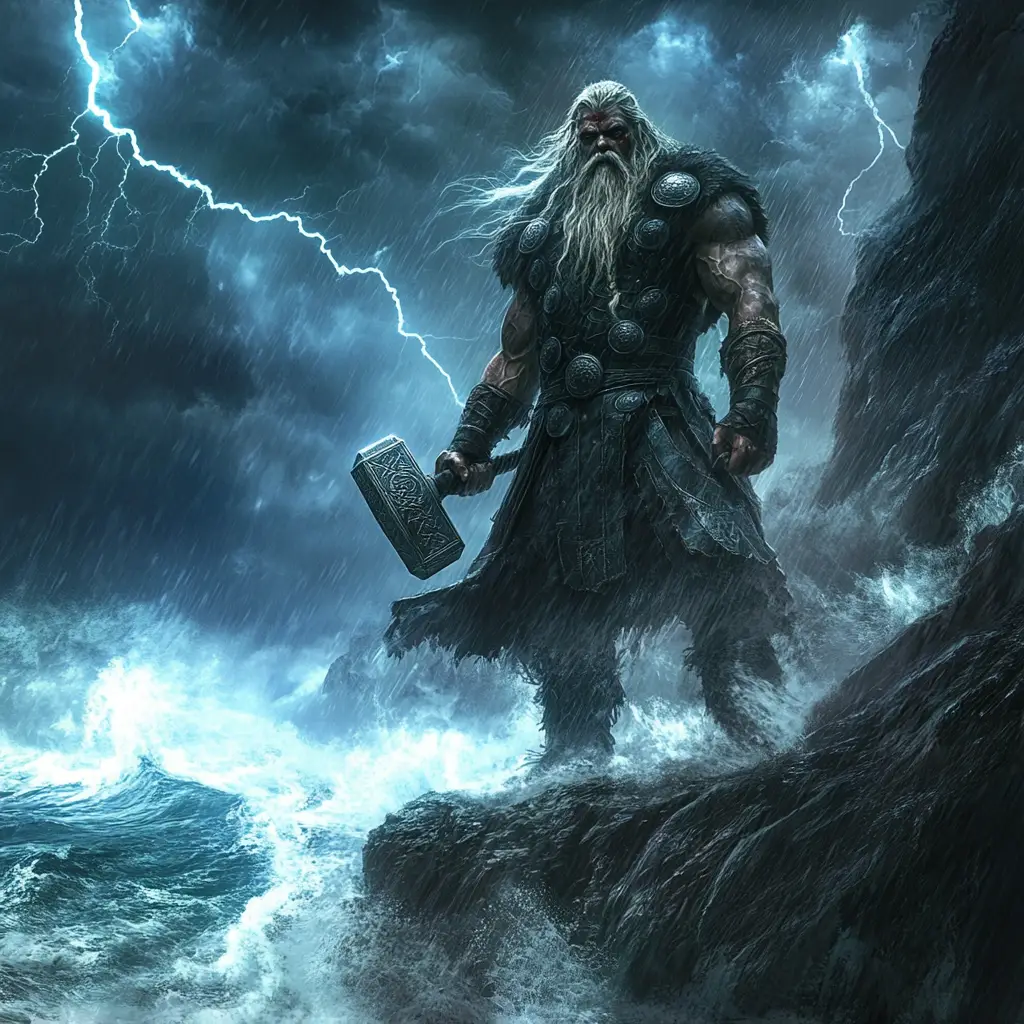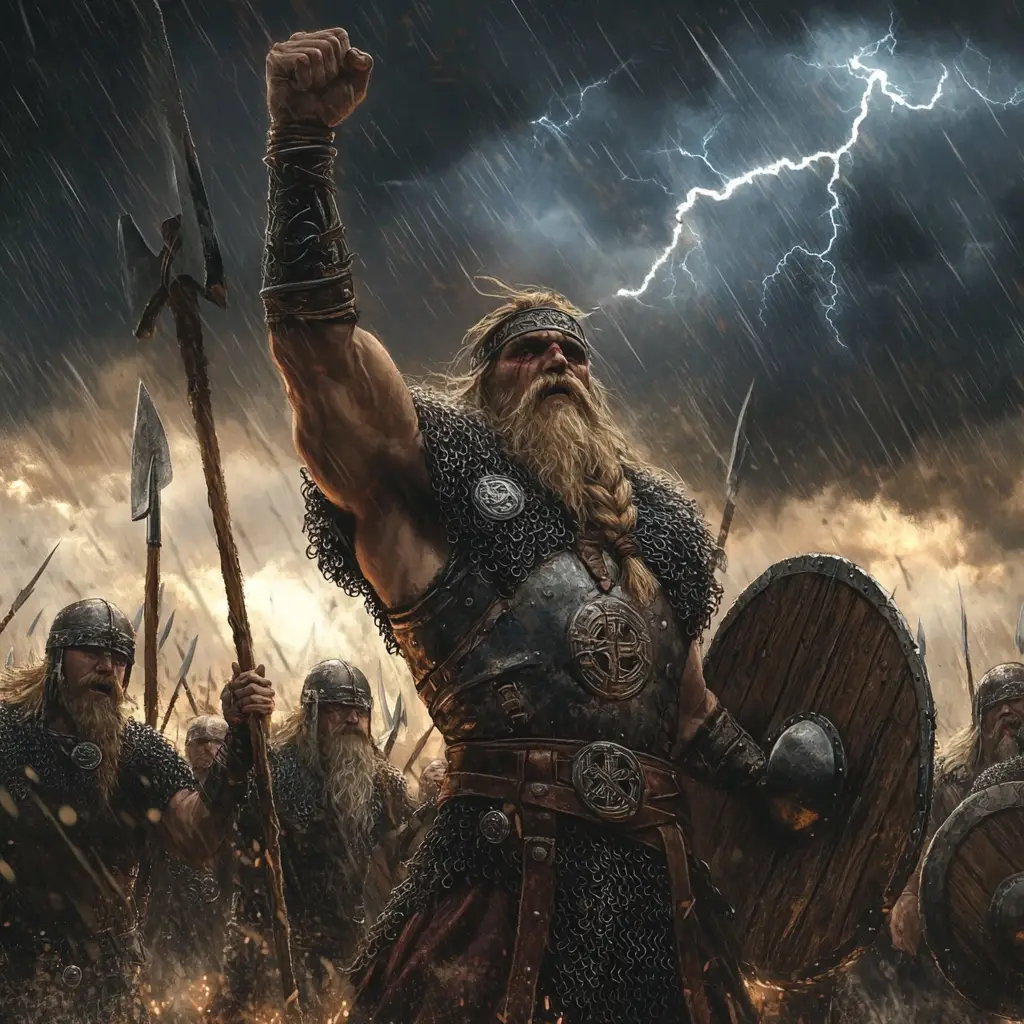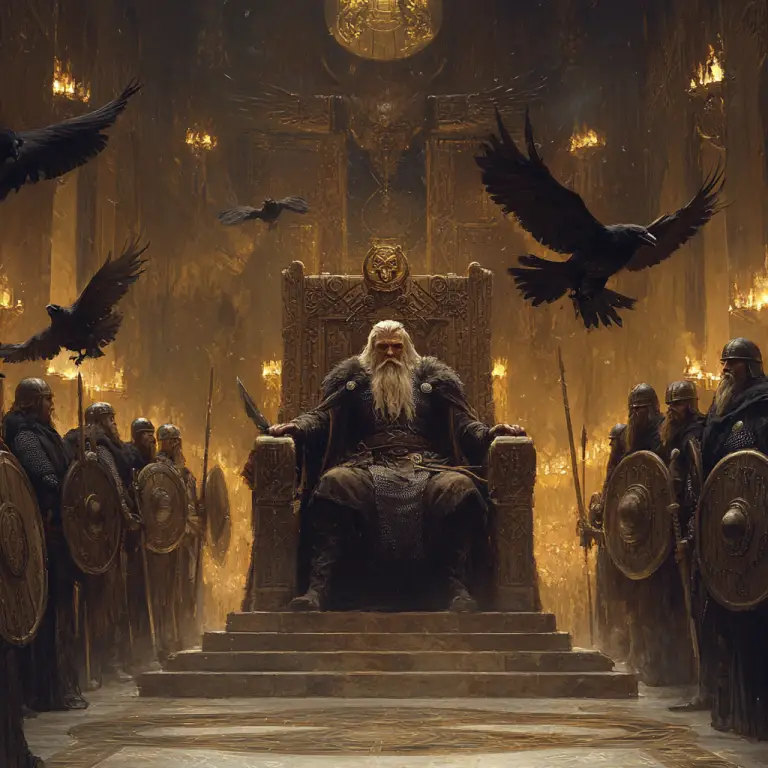The days of the week in modern-day English are named after gods and celestial bodies, many of which are rooted in Norse mythology. Each day corresponds to a different Viking god or figure, reflecting the influence of the Norse pantheon on our calendar. Here’s a breakdown of how the days of the week are linked to Viking gods:
Monday: Moon’s Day
Monday is named after the Moon, but in Norse tradition, this day was linked to the god Máni, the personification of the moon. Máni, in Viking mythology, was said to guide the moon through the night sky, and his name is reflected in the term “Moon’s Day.”
Tuesday: Tiw’s Day
Tuesday is named after Týr, the Norse god of war, justice, and sacrifice. Týr is best known for losing his hand to the wolf Fenrir in order to bind the creature. In Old English, Tuesday was “Tiw’s Day,” directly referencing the god’s influence, with Tiw being an Anglicised form of Týr.
Wednesday: Woden’s Day
Wednesday takes its name from Woden (or Odin), the Allfather and chief of the Norse gods. Odin was associated with wisdom, war, death, and poetry. “Woden’s Day” is a direct reflection of his power and importance in Viking culture, and it is still preserved in the modern name for the day.
Thursday: Thor’s Day
Thursday is named after Thor, the thunder god and one of the most popular and powerful figures in Norse mythology. Thor was known for his strength and protection of mankind, often battling giants with his hammer, Mjölnir. The name “Thor’s Day” reflects his role as a protector and a symbol of power.
Friday: Frigg’s Day
Friday is named after Frigg, the goddess of marriage, love, and fertility, and Odin’s wife. In Norse mythology, Frigg was also associated with the foretelling of fate. The day is a reflection of her nurturing and protective qualities. In some languages, such as the Germanic “Frigg’s Day,” the day is directly linked to her name.
Saturday: Saturn’s Day
While Saturday is named after the Roman god Saturn, it doesn’t have a direct connection to Norse mythology. However, some scholars suggest that it may have been influenced by the Norse connection to agricultural gods, as Saturn was associated with time, harvest, and wealth, themes also important in Norse culture.
Sunday: Sun’s Day
Sunday is named after the Sun, and although there is no specific Norse god for the sun, it is often associated with the goddess Sol (Sunna) in Viking mythology. Sol was believed to ride the sun’s chariot across the sky, pursued by a wolf. “Sun’s Day” reflects the central role the Sun played in both Norse cosmology and daily life.
These names, rooted in Norse and Germanic traditions, have evolved into the modern-day English days of the week, preserving a connection to Viking gods and mythology.



